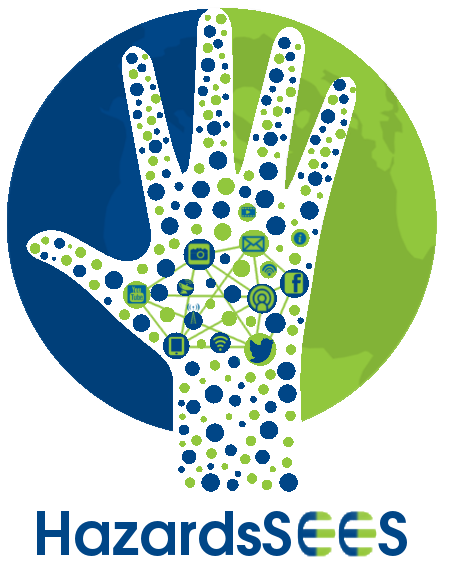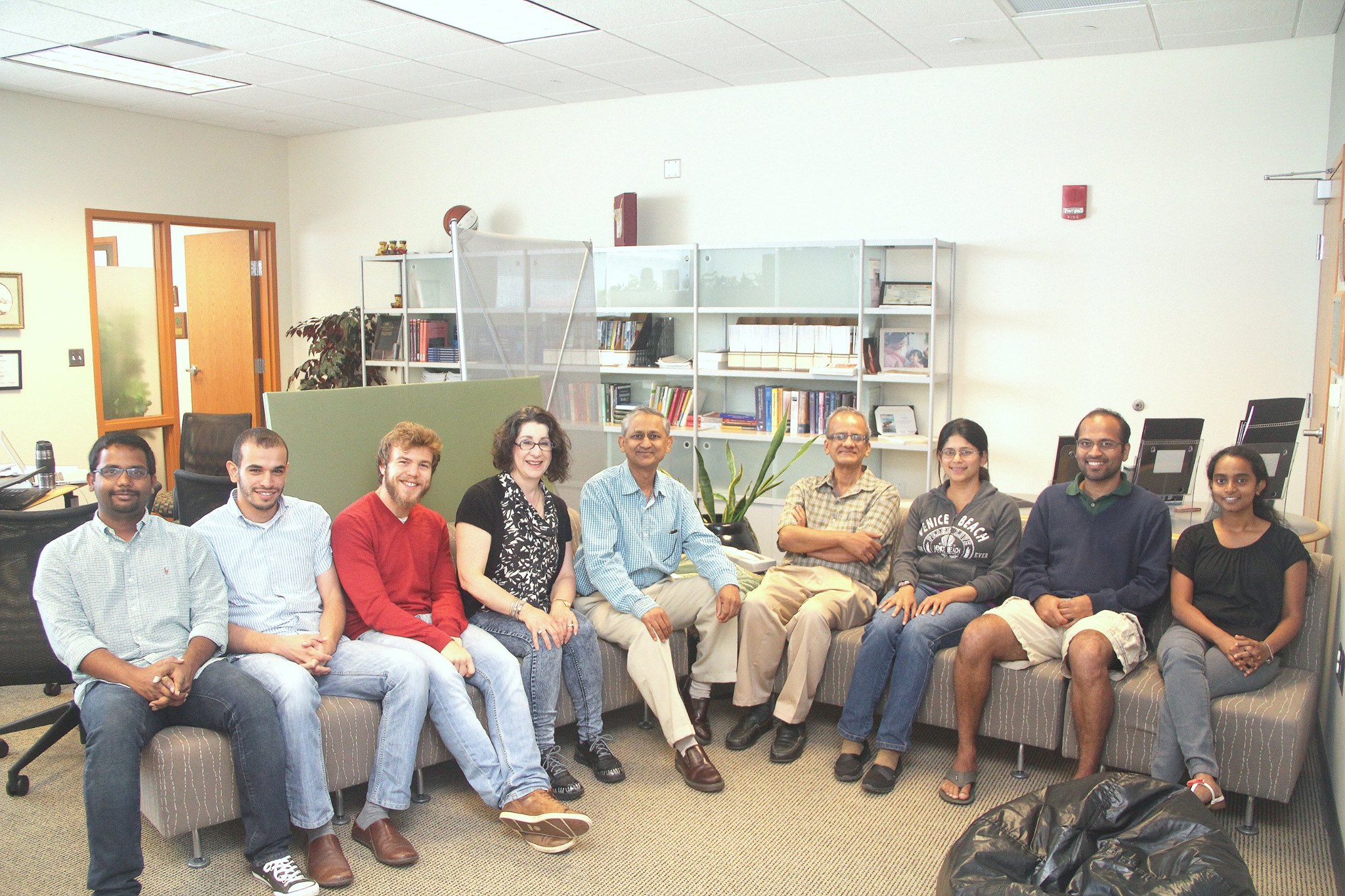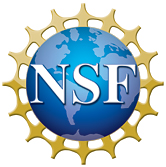Social and Physical Sensing Enabled Decision Support
| Social and Physical Sensing Enabled Decision Support | |
|---|---|
 | |
| Project Overview | |
| Motto | To provide an effective interface and tools to identify means by which first-responders should prioritize relief efforts both during and after a disaster event |
| Timeline | 15 Aug 2015 - 31 July 2019 |
| Project Funding | |
| Funding Agency | National Science Foundation |
| Award Amount | $1,975,000 |
| Award Number | EAR 1520870 |
Hazards SEES: Social and Physical Sensing Enabled Decision Support for Disaster Management and Response is a NSF funded project involving a collaboration between Kno.e.sis Center, Wright State University and Ohio State University.
Contents
[hide]Overview
Infrastructure systems are a cornerstone of civilization. Damage to infrastructure from natural disasters such as an earthquake (e.g. Haiti, Japan), a hurricane (e.g. Katrina, Sandy) or a flood (e.g. Kashmir floods) can lead to significant economic loss and societal suffering. Human coordination and information exchange are at the center of damage control. This project seeks to radically reform decision support systems for managing rapidly changing disaster situations by the integrated exploitation of social, physical and hazard modeling capabilities. This effort is expected to provide a model for highly integrative and collaborative work among researchers in computer science, engineering, natural sciences and the social sciences for research, education, and training of undergraduate and graduate students including those from under-represented groups.
The team will design novel, multi-dimensional cross-modal aggregation and inference methods to compensate for the uneven coverage of sensing modalities across an affected region. By assimilating data from social and physical sensors and their integrated modeling and analysis, methodology to predict and help prioritize the temporally and conceptually extended consequences of damage to people, civil infrastructure (transportation, power, waterways) and their components (e.g. bridges, traffic signals) will be designed. The team will develop innovative technology to support the identification of new background knowledge and structured data to improve object extraction, location identification, correlation or integration of relevant data across multiple sources and modalities (social, physical and Web). Novel coupling of socio-linguistic and network analysis will be used to identify important persons and objects, statistical and factual knowledge about traffic and transportation networks, and their impact on hazard models (e.g. storm surge) and flood mapping. Domain-grounded mechanisms will be developed to address pervasive trustworthiness and reliability concerns. Exemplar outcomes are expected to include specific tools for first-responders as well as recovery teams to aid in the prioritization of relief and repair efforts, leveraging improved flood response, urban mapping, and dynamic storm surge models, and interdisciplinary training of students leveraging research in pedagogy, in conjunction with Ohio State University’s new undergraduate major in data analytics, and Wright State University’s Big and Smart Data graduate certificate program.
Research Questions
Key questions that will be addressed in this project are:
- How can we extract reliable, trustworthy and relevant nuggets of information related to civil infrastructure from language-based citizen sensed data sets across the stages of the disaster life-cycle (preparedness, response & recovery)?
- How can we develop adaptive and dynamic models of hurricane storm surge and flood resiliency coupled with fused information from citizen sensed and remote sensed data?
- What kind of interface and tools can assist first-responders in leveraging physical sensing (e.g. remote sensing), citizen sensing and their interactions pertaining to infrastructure elements (e.g. chokepoints in a traffic network due to road or bridge closures).
People
- Principal Investigators: Srinivasan Parthasarathy (OSU-Contact PI), Amit P. Sheth (Kno.e.sis, WSU)
- Co-Principal Investigators: Densheng Liu (OSU), Ethan Kubatko (OSU), Valerie Shalin (Kno.e.sis, WSU), T.K.Prasad (Kno.e.sis, WSU)
- Graduate Researchers: Sarasi Lalithsena, Pavan Kapanipathi, Hussein Al-Olimat, Siva Kumar, Manas Gaur, and Shruti Kar.
- Postdoctoral Researcher: Saeedeh Shekarpour Tanvi Banerjee
Funding
|
Publications
- Gaur, M., Kursuncu, U., Sheth, A. Yadav, S. & Wickramarachchi (2020), "Hypertext 2020 Tutorial: Knowledge-infused Deep Learning", In 31st ACM Conference on Hypertext and Social Media (HT'20), Florida, USA
- Hussein S. Al-Olimat, Valerie L. Shalin, Krishnaprasad Thirunarayan, Joy Prakash Sain. "Towards Geocoding Spatial Expressions (Vision Paper)". In Proceedings of the 27th ACM SIGSPATIAL International Conference on Advances in Geographic Information Systems (ACM SIGSPATIAL 2019). Chicago, IL, USA.
- Manas Gaur, Saeedeh Shekarpour, Amelie Gyrard, Amit Sheth. empathi: An ontology for Emergency Managing and Planning about Hazard Crisis. International Conference on Semantic Computing Conference (ICSC) 2019.
- Pranav Maneriker, Nikhita Vedula, Hussein Al-Olimat, Jiayong Liang, Omar El-Khoury, Ethan Kubatko, Desheng Liu, Krishnaprasad Thirunarayan, Valerie Shalin, Amit Sheth, and Srinivasan Parthasarathy. A Pipeline for Disaster Response and Relief Coordination. SIGIR 2019.
- Shruti Kar, Hussein S. Al-Olimat, Krishnaprasad Thirunarayan, Valerie Shalin, Amit Sheth, and Srinivasan Parthasarathy. "D-record: Disaster Response and Relief Coordination Pipeline". In Proceedings of the ACM SIGSPATIAL International Workshop on Advances in Resilient and Intelligent Cities (ARIC 2018). ACM, 2018.
- Swati Padhee, Sarasi Lalithsena and Amit Sheth. "Creating Real-Time Dynamic Knowledge Graphs".International Semantic Web Research School (ISWS) 2018, Bertinoro, Italy; 2018
- Ugur Kursuncu, Manas Gaur,Usha Lokala,Krishnaprasad Thirunarayan,Amit Sheth and I. Budak Arpinar. "Predictive Analysis on Twitter: Techniques and Applications". Book Chapter in "Emerging Research Challenges and Opportunities in Computational Social Network Analysis and Mining", Editor: Nitin Agarwal, Springer, 2018.
- Hussein S. Al-Olimat, Krishnaprasad Thirunarayan, Valerie Shalin, and Amit Sheth. "Location Name Extraction from Targeted Text Streams using Gazetteer-based Statistical Language Models." The 27th International Conference on Computational Linguistics (COLING 2018).
- Mahda Noura, Amelie Gyrard, Sebastian Heil, Martin Gaedke. Automatic Knowledge Extraction to build Semantic Web of Things Applications. IEEE Internet of Things (IoT) Journal 2019.
- Amelie Gyrard, Antoine Zimmermann and Amit Sheth. Building IoT based applications for Smart Cities: How can ontology catalogs help?. IEEE Internet of Things Journal 2018, vol. 5, no. 5, pp. 3978-3990, Oct. 2018.
- Mahda Noura, Amelie Gyrard, Sebastian Heil and Martin Gaedke. Concept extraction from the web of things knowledge bases. International Conference WWW/Internet. 21-23 October 2018, Budapest, Hungary
- Amelie Gyrard, Manas Gaur, Swati Padhee, Amit Sheth and Mihaela Juganaru-Mathieu. Knowledge Extraction for the Web of Things (KE4WoT): WWW 2018 Challenge Summary. WWW '18 Companion Proceedings of The Web Conference, 23-27 April 2018, Lyon, France
- Paul Groth, Amelie Gyrard. Demo Track Chairs' Welcome & Organization. WWW '18 Companion Proceedings of The Web Conference 2018. 23-27 April 2018, Lyon, France
- Amelie Gyrard, Manas Gaur, Krishnaprasad Thirunarayan, Amit Sheth and Saeedeh Shekarpour. Personalized Health Knowledge Graph. 1st Workshop on Contextualized Knowledge Graph (CKG) co-located with International Semantic Web Conference (ISWC), 8-12 October 2018, Monterey, USA.
- Lalithsena, Sarasi, Sujan Perera, Pavan Kapanipathi, and Amit Sheth. "Domain-specific hierarchical subgraph extraction: A recommendation use case." In Big Data (Big Data), 2017 IEEE International Conference on, pp. 666-675. IEEE, 2017.
- Sanjaya Wijeratne, Amit Sheth, Shreyansh Bhatt, Lakshika Balasuriya, Hussein Al-Olimat, Manas Gaur, Amir Hossein Yazdavar, Krishnaprasad Thirunarayan. "Feature Engineering for Twitter-based Applications", in Feature Engineering for Machine Learning and Data Analytics. Editors. Guozhu Dong and Huan Liu. Chapman and Hall/CRC Data Mining and Knowledge Discovery Series. pp 359-393, March, 2018.
- Amit Sheth, Sujan Perera, Sanjaya Wijeratne, Krishnaprasad Thirunarayan. "Knowledge will Propel Machine Understanding of Content: Extrapolating from Current Examples". In 2017 IEEE/WIC/ACM International Conference on Web Intelligence (WI). Leipzig, Germany: ACM; 2017. p. 1-9.
- D. Wood, E. J. Kubatko, M. Rahimi, A. Shafieezadeh (2017). Improvements in Internal Barrier Modeling for Fluid-Structure Interaction Models with Storm Surge. IACM 19th International Conference on Finite Elements in Flow Problems. Rome, Italy.
- Jiayong Liang and Desheng Liu. (2017). Image fusion for flood detection based on surface change probability (IFFD): an example of MODIS and Landsat.. AAG Annual Meeting (American Association of Geographers). Boston, MA.
- O. El-Khoury and E. J. Kubatko (2017). Adaptive Mesh Refinement in DGSWEM. Circulation and Transport Modelling Workshop. University of Notre Dame.
- Nikhita Vedula, Srinivasan Parthasarathy and Valerie Shalin. (2017). Predicting Trust Relations Within a Social Network: A Case Study on Emergency Response. ACM International Conference on Web Science.
- Nikhita Vedula, Srinivasan Parthasarathy and Valerie Shalin (2016). Predicting Trust Relations Among Users in a Social Network: On the roles of Influence, Cohesion and Valence. ACM SIGKDD WISDOM Proceedings.
- Nikhita Vedula and Srinivasan Parthasarathy: (2017). Emotional and Linguistic Cues of Depression from Social Media. ACM Digital Health, 2017.
- Jiongqian Liang, Peter Jacobs and Srinivasan Parthasarathy (2016). Human Guided Flood Mapping on Satellite Images. ACM SIGKDD Interactive Data Exploration and Analytics.
- J. Liang and S. Parthasarathy (2016). Robust Contextual Outlier Detection: Where Context Meets Sparsity. Proceedings of ACM Conference on Information and Knowledge Management.
- Andrew Hampton, Shreyansh Bhatt, Alan Smith, Jeremy Brunn, Hemant Purohit, Valerie Shalin, John Flach, Amit Sheth. Constructing Synthetic Social Media Stimuli for an Emergency Preparedness Functional Exercise. Proc. of the 14th International Conference on Information Systems for Crisis Response and Management (ISCRAM). Albi, Occitanie Pyrénées-Méditerranée, France, May 2017.
- Usha Lokala, Srinivas Nowduri, and Prabhakar Sharma (2017). Road Accidents Big Data Mining and Visualization Using Support Vector Machines. World Academy of Science, Engineering and Technology, International Journal of Computer, Electrical, Automation, Control and Information Engineering. 10 (8), 1517.
- Sarasi Lalithsena, Pavan Kapanipathi, Amit Sheth (2016). Harnessing Relationships for Domain-specific Subgraph Extraction: A Recommendation Use Case. IEEE International Conference on Big Data. 706.
- Hampton, A.J. & Shalin, V.L. (2016). Sentinels of breach: Lexical choice as a metric of urgency. Human Factors, Special Issue on Big Data. 59 (4), 505.
- Amit Sheth and Pavan Kapanipathi (2016). Semantic Filtering for Social Data. IEEE Intelligent Systems. 31 (4).
- J. Liang, D. Ajwani, P. Nicolson, A. Sala, S. Parthasarathy (2016). What Links Alice and Bob? Matching and Ranking Semantic Patterns in Heterogeneous Networks. Proceedings of the 25th International World Wide Web Conference.
- Jiongqian Liang, Peter Jacobs and Srinivasan Parthasarathy (2016). Human Guided Flood Mapping on Satellite Images. ACM SIGKDD Interactive Data Exploration and Analytics.
- Kalpa Gunaratna, Krishnaprasad Thirunarayan, Amit Sheth, Gong Cheng. (2016). Gleaning Types for Literals in RDF Triples with Application to Entity Summarization.. 13th International Conference, ESWC 2016.
- Nikhita Vedula, Srinivasan Parthasarathy and Valerie Shalin (2016). Predicting Trust Relations Among Users in a Social Network: On the roles of Influence, Cohesion and Valence. ACM SIGKDD WISDOM Proceedings.
- Sujan Perera, Pablo N. Mendes, Adarsh Alex, Amit Sheth, Krishnaprasad Thirunarayan. (2016). Implicit Entity Linking in Tweets. In Extended Semantic Web Conference (ESWC).
- Jacob Ross, Krishnaprasad Thirunarayan (2016). Features for Ranking Tweets Based on Credibility and Newsworthiness. 17th International Conference on Collaboration Technologies and Systems (CTS 2016). 18-25.
Tutorials
Blog Posts
Tools
- Location Name Extractor (LNEx): A fine-grained geoparsing tool which extracts location mentions from texts and geocode them using OpenStreetMap. The tool was specifically designed for disaster-related use-cases to support spatio-temporal analysis of data for disaster response.
- Developer: Hussein Al-Olimat
- Geoann: an annotation tool for geocoding location names in texts. We use [brat.nlplab.org Brat] (a web-based tool for NLP-assisted text annotation) for visualizing the annotated texts. Geoann allows the annotator to retrieve all the required geo-information needed without leaving the annotation panel, i.e., it facilitates the retrieval and search of location names using Google Maps API. The tool then allows users to annotate location names by drawing bounding boxes of their spatial extents. Then, it saves the annotations in the same file-based stand-off format of each tweet.
- Developers: Hussein Al-Olimat and Dipesh Kadariya
- DisasterRecord: DisasterRecord meets the requirements of a variety of users. A humanitarian organization may analyze the situation at a community level for deploying and mobilizing necessary help. A first response coordinator can monitor a specific type of emergency needs. Affected individuals may need to know about the nearest available help. Persons wishing to provide support can identify current needs in the geographic proximity for the type of help they can provide.
- Developers: Shruit Kar, Dipesh Kadariya, Mike Partin, and Hussein Al-Olimat
Related Projects
Concurrent Projects
- Context-Aware Harassment Detection on Social Media
- Project Safe Neighborhood
- EdrugTrends
- Innovative NIDA National Early Warning Sysetm Network (iN3)
- MIDAS
- Market Driven Innovations and Scaling up of Twitris
- Modeling Social Behavior for Healthcare Utilization in Depression
- kHealth: Semantic Multisensory Mobile Approach to Personalized Asthma Care

